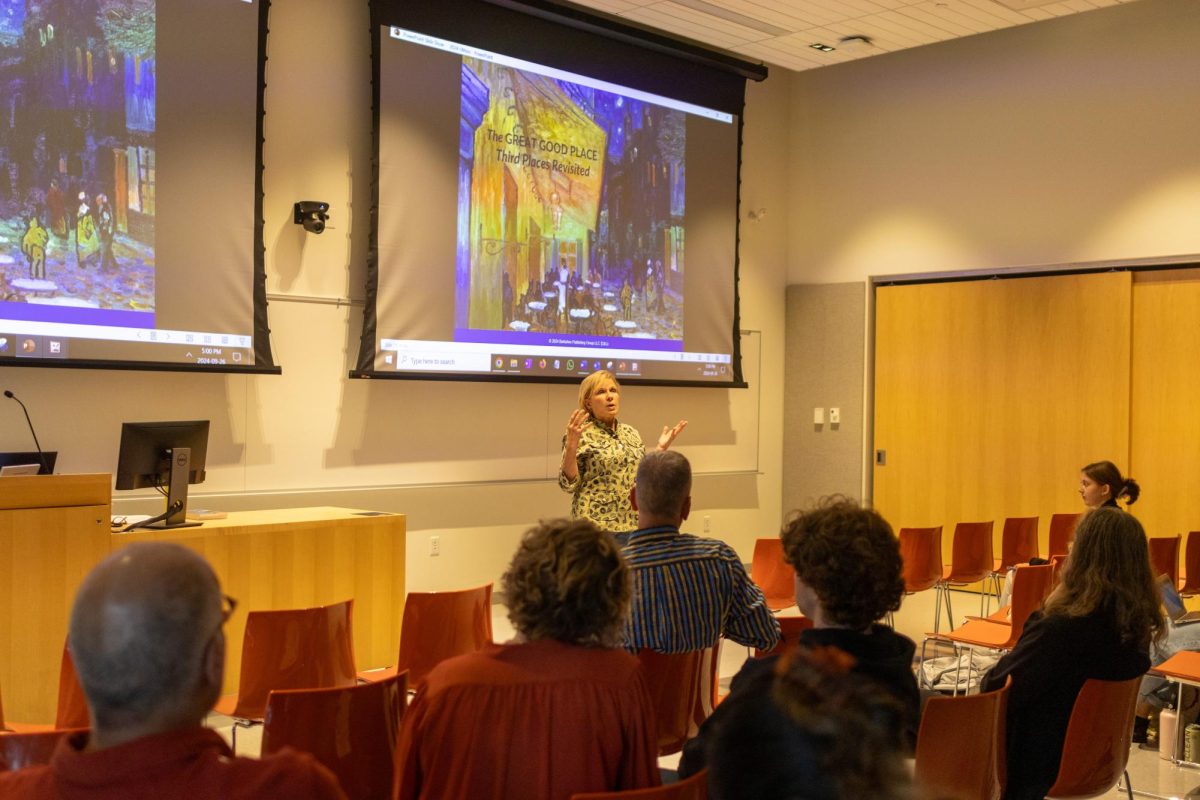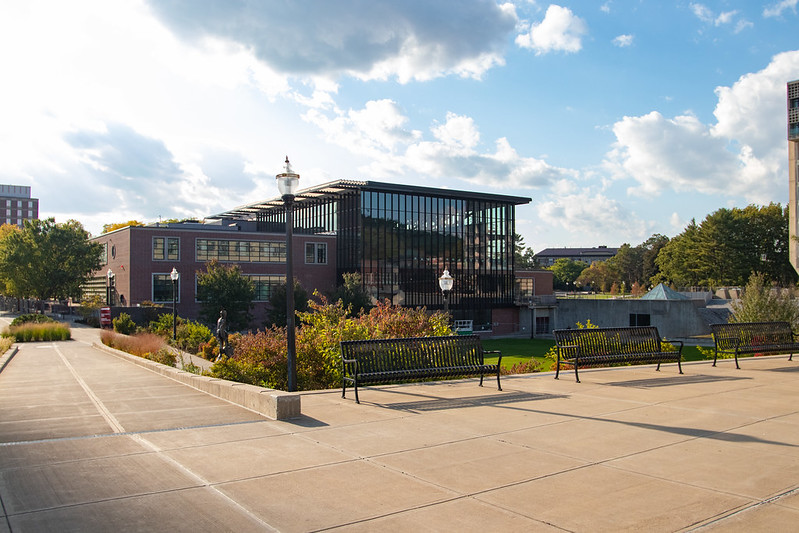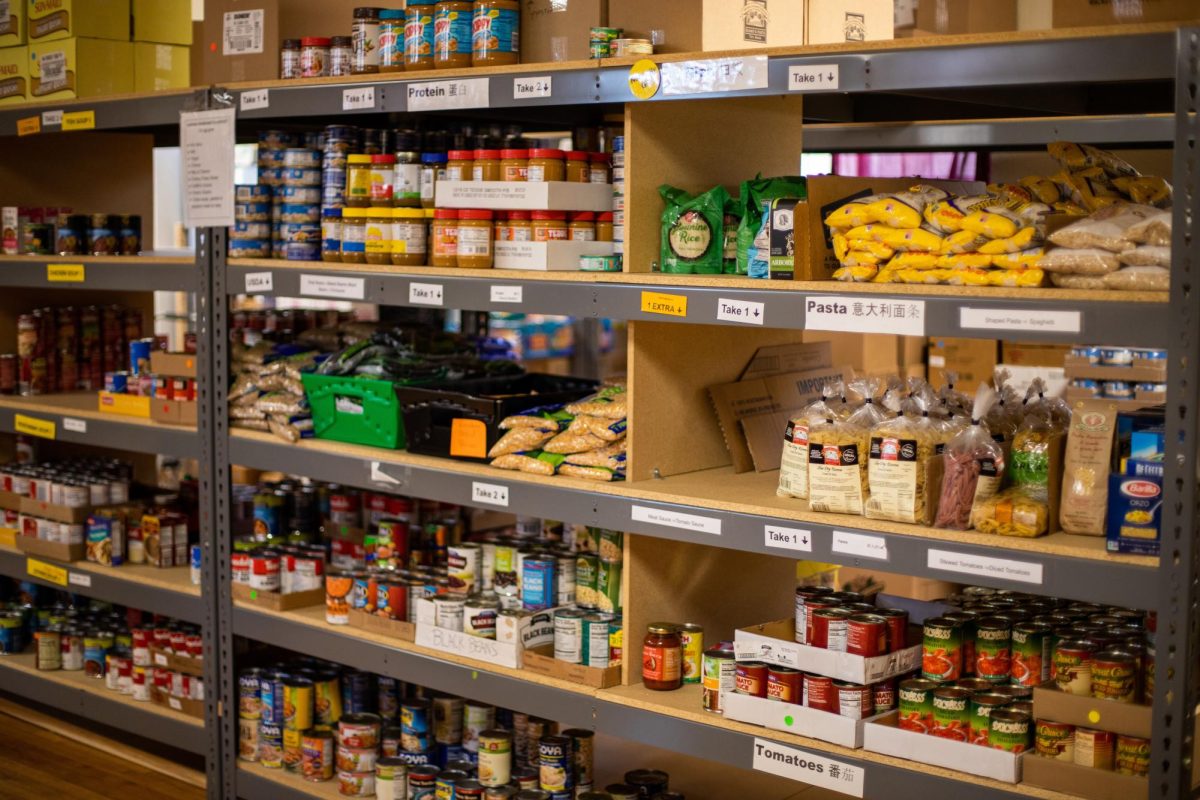
Hampshire Dining Commons will be the first on-campus eatery at the University of Massachusetts to obtain most of its food and produce from local sources. These plans are part of the UMass Healthy and Sustainable Food System Initiative, a pilot project expected to transform the dining hall into a model for food sustainability.
A report published by the Food and Agriculture Organization of the United Nations stated the agricultural sector is the second highest source of greenhouse gases in the country. According to the UMass Dining website, the Healthy and Sustainable Food System Initiative has already taken several measures to decrease the environmental consequences caused by agricultural practices. This is funded by a grant from the Kendall Foundation, which is used to invest in responsible farms and businesses in the New England region.
Rachel Dutton, the sustainability manager of UMass Auxiliary Enterprises said creating partnerships with local farms rather than with large industries is a step toward increasing food quality and promoting environmental responsibility.
“(Local farmers) live here and are deeply invested in the land that they work on,” Dutton said. “The fact that these establishments are within near distance makes it easier for UMass to ask them to change their practices if necessary.”
The Healthy and Sustainable Food Initiative System mentioned on its website that this program will serve as an experiment to build a large network of regional growers and distributors, community members and departments around campus.
According to the UMass Sustainability website, the Hampshire project will help to reduce the carbon emissions produced during food production and oil-dependent food transportation known as food miles.
According to Dutton, sourcing local foods has a variety of environmental, health and economic benefits that regular organic foods don’t.
“The concept, ‘Organic’ has a very specific meaning,” Dutton said. “Organic farming may still involve large-scale industrial practices. It does not offer a full answer to the environmental problem.”
Hampshire already sources about 30 percent local produce from supporting farms and businesses around New England, such as the UMass Student Farming enterprise. However, the program’s website recently released a list of food items that they hope to start sourcing locally, prioritizing meat and dairy products. It also plans to reduce the amount of corn syrup, red meat and processed foods offered on the menu.
It is expected only locally sourced beef will be provided on campus by the end of the year. This is a significant step for UMass given the previous studies published in the Proceedings of the National Academy of Sciences of the United States Journal, suggesting meat production accounts for more greenhouse gas emissions than transportation or other industries.
The Hampshire project will additionally contribute to the vision of the Real Food Challenge, a student initiative signed by the University which aims to serve at least 20 percent healthy and ecologically sustainable food.
Currently, the University invests over $1.8 million on regional, sustainable and responsible farms and small businesses, according to the UMass Dining website. It also works with multiple programs such as the Permaculture Garden, the Student Farm, the Sustainable UMass Action Coalition and the Food Recovery Network.
Cecilia Prado can be reached at [email protected]


















